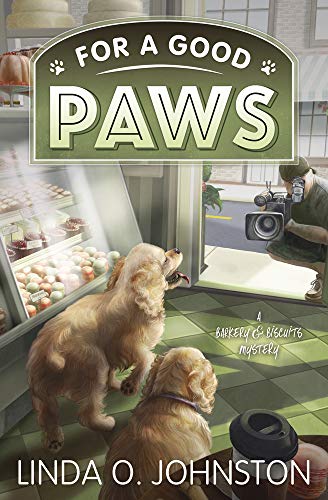CyberTalk
August 30, 2007 by A Slice of Orange in category Archives tagged as CyberTalkwith Gina Black
 Today my topic is one we’d all rather NOT think about, although many of us take precautions.
Today my topic is one we’d all rather NOT think about, although many of us take precautions.
I’m talking about what happened to me just a week ago: my hard drive crashed. And, yes, it took everything with it. This was the second time that happened to me. The first time was a slow drawn-out process where I could tell it was going and I quickly backed up everything. Since then, I bought an external hard drive and back up frequently so I thought I was safe from data loss. But the truth is, you have to be very diligent and crafty to achieve that and I hadn’t been due to my travels and various other things.
What can you do to guard against data loss completely? Burn candles? Light incense? Pray to the computer gods?
Maybe that will help, but the best way to keep the bottom from dropping out is to have a redundant backup program that you adhere to with the fervor of a religious zealot. All it takes is losing your WIP once to get you there. But it’s even better if you do this without the upfront data loss.
Here are my suggestions:
1/ Have an external hard drive and back up your data and preference files (and anything you’ve customized) on a regular basis, like weekly, biweekly but no less than monthly.
2/ Have a safe place on the internet where you can backup your files. If you have a Mac you can purchase a .mac account. There are loads of other services that offer to backup your data files, but here are some suggestions that are by no means exhaustive of what’s available.
- Start a yahoo group with your critique group or you could have your own. Save your writing files in the file area. Make sure it is NOT accessible to the public (yahoo has a “management” area where you do this).
- Get a gmail account (they come with a HUGE amount of storage) and email your WIP to yourself every day at the end of your writing session. If you don’t have a gmail account and you want one, leave me a message in the comments and I’ll send you an invitation.
3/ Put your files on a USB flash drive (one of those little things you plug into your computer). Be aware that these drives can fail, so this must be part of a redundant system.
4/ Burn all your old an unchanging data files (like those manuscripts you’ve sold or the ones that are gathering cyber-dustbunnies on your hard drive) to CD. Get them out of your house unless you are impervious to fires, earthquakes, or loss. Put them in a safe deposit box, or give them to a trusted family member or friend. CDs can fail too, so it doesn’t hurt to have two sets out there.
5/ If you have a Google account you can upload your WIP to the “documents” area and even work on it there. This is a good way to do things if you float from computer to computer. It’s easy to download them onto a local host at any time.
6/ If you have a website and it has a secure area, you can FTP your files there.
Whatever you do, do something and do it now. If I’d been a bit more diligent about backing up my finances (my writing files survived), I wouldn’t be losing part of this upcoming three day weekend to resurrecting three months worth of transactions instead of revising my WIP.
 Somehow, Gina manages to work some writing time in around her internet adventures. In addition to posting here, she blogs on The Gina Channel, Romancing the Skein, and Title Wave.
Somehow, Gina manages to work some writing time in around her internet adventures. In addition to posting here, she blogs on The Gina Channel, Romancing the Skein, and Title Wave.
And yes, her computer screen really has burned itself into her glasses.
0 0 Read moreCyberTalk
July 4, 2007 by A Slice of Orange in category Archives tagged as CyberTalkwith Gina Black
 Maybe I should title retitle my monthly column CyberTrek because once again I’m sending you all out into the internet, mice in hand. It’s the easiest way to travel. No standing in line. No exorbitant fares. No nasty airplane food. And lots and lots of good info.
Maybe I should title retitle my monthly column CyberTrek because once again I’m sending you all out into the internet, mice in hand. It’s the easiest way to travel. No standing in line. No exorbitant fares. No nasty airplane food. And lots and lots of good info.
Everybody got their coffee? Good. Let’s go.
First stop: Claire Delacroix’s post on Surviving the Copy/Line Edit
Claire is a member of one of my online groups (and fellow knitter extraordinaire) who blogs often on Very Useful Subjects. This is one of them.
Second stop: Diana Peterfreund’s post (on The Knight Agency blog) about Writing a Series
Diana’s own blog is a daily stop for me. She doesn’t shy away from controversy, so things can get lively–which I like. She also does an excellent job of explaining this business. Check out her posts on Primer Part one and Primer Part Two (Glossary). Excellent information and advice, as always.
Third stop: Agent Jessica Faust blogs about the Bad Agent
The Bookends, LLC blog has been up and running for a bit over a year now and it’s well worth spending some time digging through the archives. Recently, Jessica did a series of Query Critiques (1, 2, 3, 4, 5, 6, 7, 8, 9, 10. wrap-up, and follow-up).
Fourth stop: Ever wonder who reps who?
Querytracker.net purports to have the answer and so far–from what I know–they seem to have it right. There’s also a system of tracking queries built into the site that I haven’t looked in to, but I know some people who have and they like it. Even without that function, when querying an agent you really need to know at least some of who their other clients are.
Just a note, if you stop by someone’s blog and you enjoy the entry, leave a comment. If you really enjoy the entry, buy their book. 😉
That’s it for this month. I hope you enjoyed the ride!
 Somehow, Gina manages to work some writing time in around her internet adventures. In addition to posting here, she blogs on The Gina Channel, Romancing the Skein, and Title Wave.
Somehow, Gina manages to work some writing time in around her internet adventures. In addition to posting here, she blogs on The Gina Channel, Romancing the Skein, and Title Wave.
And yes, her computer screen really has burned itself into her glasses.
2 0 Read moreCyberTalk
June 20, 2007 by A Slice of Orange in category Archives tagged as CyberTalkwith Gina Black
 This month on CyberTalk we’re going on fieldtrips! But don’t worry, you can stay in your jammies; you don’t even need to brush your hair or pack a bag lunch; and you can bring the beverage of your choice (as long as you make it yourself).
This month on CyberTalk we’re going on fieldtrips! But don’t worry, you can stay in your jammies; you don’t even need to brush your hair or pack a bag lunch; and you can bring the beverage of your choice (as long as you make it yourself).
I’ve got my tea. Is everybody ready? Mouses and trackballs set to go?
First stop: The Crusie-Mayer 2007 Online Workshop
This workshop has been going since January, never fear you can catch up whenever you want and there’s no homework! The link above takes you to a syllabus for the class, which is being given by Jennifer Crusie and her writing partner, Bob Mayer. Both of them are wonderful teachers. Whether you are a newbie or have been writing for a very long time, it’s worth checking this out. (And, yes, I did post about this once before but it’s worth a second plug.) A recent post on subplots was something I’ve needed to read for a long time.
Second stop: OCC Pro Page
Are you are an OCC member interested in becoming a Pro? The instructions for what you need to do is on that page. If you have additional questions, feel free to contact me (and yes, my contact information is also on that page). You may also wish to visit the National site for more Pro information (you will need to log in to access the page).
Third Stop: the Urban Dictionary
Are you writing a contemporary? Do you want to use slang but feel like yours is out of date? (Or do you have teenagers and find that they’re speaking another language?) Check out the urban dictionary; it’s a goldmine. One caveat: definitions are added by anyone who wants to, so you can’t trust them all. Still, it’s the most up-to-date collection of slang I’ve found on the internet. A bonus is that each day they post a word and it’s definition. Here’s a recent entry:
The post-drunken, post-tipsy state at which the removal of clothing begins.
Brian: Jen, where’s your shirt?
Jen: I don’t know; last night I got a little stripsy…
Fourth Stop: the Visual Thesaurus
The Visual Thesaurus is one of the most amazing word-tools I’ve found on the internet. Yes, you need to purchase a subscription, but if you don’t have one, you can look up a word or two on each visit and sometimes that’s all it takes. Instead of presenting word suggestions in paragraphs as they are in most standard thesauri, the word you input connects to other words through outward radiating lines. Click on the word suggestions and it will give you a definition, and also become the center of a new visual display. Try it!
Getting tired? Okay, only one more adventure . . . once you get there you can sit back, close your eyes, and listen to . . .
Fifth Stop: Grammar Girl
These podcasts are usually under five minutes and usually well worth the time. You will have the option of subscribing through iTunes (which is what I do), listening on the page, or reading the week’s entry.
I hope you enjoyed this month’s foray!
 Somehow, Gina manages to work some writing time in around her internet adventures. In addition to posting here, she blogs on The Gina Channel, Romancing the Skein, and Title Wave.
Somehow, Gina manages to work some writing time in around her internet adventures. In addition to posting here, she blogs on The Gina Channel, Romancing the Skein, and Title Wave.
And yes, her computer screen really has burned itself into her glasses.
2 0 Read moreCyberTalk
May 4, 2007 by A Slice of Orange in category Archives tagged as CyberTalkby Gina Black
 So you want to have a website, or maybe you think you should have a website, but the whole thing is so confusing you’ve done absolutely n-o-t-h-i-n-g.
So you want to have a website, or maybe you think you should have a website, but the whole thing is so confusing you’ve done absolutely n-o-t-h-i-n-g.
Don’t despair. It’s not that complicated. Really. Let me help get you started by sharing my version of website A, B, C’s.
A is for address. Just like every business, if you’re going to have a website, your customers (or readers) need to be able to find it. Remember: Location, location, location. To a writer that means you want your name in the address (or domain name). If your website is set up properly they will be able to Google you anyway, but make it as easy as possible by buying yourname.com. But what if (like in my case) the .com that goes with your name is already taken? Then go for .net or put a hyphen in your name (gina-black.com wasn’t taken so I grabbed it), or do whatever you can think of to get it as close to yourname.com as possible. Are you going to write under a pseudonym? Then buy that too, while you’re at it. If possible, get both the .com and .net. One caveat: when you purchase your domain name your information (name, address, email, phone contact) goes on public record. If you don’t want that you can pay for a private registration (with some companies), or get a P.O. Box, which is a good thing for any author to have anyway.
But, you say, you don’t want to set up the website now. Not a problem, says I. You can buy the domain name at any time and hold onto it until you are ready to . . .
B is for build your website. In order to do that, you need a place to put it. In cyberspace, the equivalent of “land” is space on a server. Your server can be located anywhere in the world. Mine happens to be in England (just because I felt like it). There are loads of companies that would love to sell you space on their computers for your website.
C is for content (which is made out of code–called HTML, but I’m not going into that today). What kind of a cyber-home do you want? For this I can only offer you the simple advice that your website should reflect your voice and the kind of stories you tell. Some authors include lots of personal information, some don’t even have an author photo, some include blogs, and discussion forums, some have just a page or two to advertise their books and provide links to booksellers. Spend a day or two touring the various cyber-neighborhoods, make notes about what you like and bookmark the sites you love. If you aren’t a graphic designer, or don’t want to figure out how to build it yourself you can hire someone to make it for you, but it will be easier for you and them if you can tell them what you want, including colors, tone, and style. If you hire someone they might want to sell you a whole package of domain name, server space, and web design with monthly updates. The more you understand, the easier it will be to find someone who can give you what you want for what you can afford. Or, you could try it yourself!
So now that you know what you need, where do you start? I don’t want this to turn into a commercial, and it really is good to do your own research, so, I’ve included some links to Google searches:
Domain name registration
Website hosts (servers)
Web designers (for authors)
Remember, no endorsements here, just a place to start. Especially with web designers, you might wish to find one through a referral from someone who has a site you particularly like.
 Gina collects domain names like some people do shoes. In her closet, she now has allyouneedisyarn.com, marciasgallery.com, gbtrynin.com (in case she ever writes that mystery), theresablack.com (her YA alter-ego), and ten others, including ginablack.net.
Gina collects domain names like some people do shoes. In her closet, she now has allyouneedisyarn.com, marciasgallery.com, gbtrynin.com (in case she ever writes that mystery), theresablack.com (her YA alter-ego), and ten others, including ginablack.net.
And yes, her computer screen really has burned itself into her glasses.
0 0 Read moreCyberTalk
April 6, 2007 by A Slice of Orange in category Archives tagged as CyberTalk I posted my first entry to my first blog on December 31, 2003. Since then I’ve posted hundreds more, created five other blogs, joined many communities, and spent hours and hours pointing and clicking my way through the blogosphere, leaving comments and making friends. It’s no wonder that one of the questions I get asked over and over again is: should I start a blog?
I posted my first entry to my first blog on December 31, 2003. Since then I’ve posted hundreds more, created five other blogs, joined many communities, and spent hours and hours pointing and clicking my way through the blogosphere, leaving comments and making friends. It’s no wonder that one of the questions I get asked over and over again is: should I start a blog?
The answer is . . . it depends. That’s because the answer really lies in another question: why do you want to blog?
There are many good, valid reasons to blog. But the most important one is because you want to. Blogging is a big commitment. Creating a regular online presence takes a lot of time and energy. It cuts into writing time. It can help or hinder your career–although just how much isn’t really measurable. So for it to be worthwhile it has to feed you personally in some way or other.
The best blogs are interesting, updated on a regular basis, and interactive. They have pictures and lots of white space so they are easy to read. They might be funny, contain inside information, essays on the craft, or cute stories. Most importantly, they draw you back to them.
Problem blogs contain rants that go out-of-bounds or contain TMI about something that shouldn’t be broadcast into cyberspace. An example of this might be chronicling one’s journey to pubbed author by including verbatim responses from agents who have rejected your work. So, in addition to all your writing pals reading this, prospective agents can too. Not a good idea.
Does blogging sell books? I don’t think anyone knows. It can help consolidate a fan base. It can spread buzz about an author, but, if used purely for marketing, blogs get boring.
Blogs are a great way to create a community and become a part of the friendly blogosphere. They are a great way for pubbed authors to stay in touch with their fans on a regular (or semi-regular) basis. But it’s important to remember that not everyone who reads your blog is friendly, nice, and trustworthy. A blog requires a careful mix of candor and caution. You don’t want to divulge personal information that would let people find you or your family. For that reason many bloggers will use nicknames when blogging about family members and are careful about posting photos. Not everyone wants to be a public figure.
Want to blog but don’t want the responsibility of providing constant content? Consider group blogging–like this!
Obviously, this is just the tip of the blogberg. Got questions I didn’t answer? Put them in the comments, and I’ll answer them there.
 Somehow Gina manages to work some writing time in around her blogging. In addition to posting here, she blogs on The Gina Channel, Romancing the Skein, and Title Wave.
Somehow Gina manages to work some writing time in around her blogging. In addition to posting here, she blogs on The Gina Channel, Romancing the Skein, and Title Wave.
And yes, her computer screen really has burned itself into her glasses.
3 0 Read moreAffiliate Links
A Slice of Orange is an affiliate with some of the booksellers listed on this website, including Barnes & Nobel, Books A Million, iBooks, Kobo, and Smashwords. This means A Slice of Orange may earn a small advertising fee from sales made through the links used on this website. There are reminders of these affiliate links on the pages for individual books.
Search A Slice of Orange
Find a Column
Archives
Featured Books
MY FRIEND JACKSON
Can Jasmine untangle her life and reclaim her identity, her life—her soul?
More info →FOR A GOOD PAWS
Barkery owner Carrie Kennersly is leashed with a tale of two culprits.
More info →HOLE IN ONE
By day they had been fierce rivals in a collegiate golf competition, but at night . . .
More info →COVERT ALLIANCE
Passion flares between a mysterious woman and a covert investigator who knows her secret…
More info →Newsletter
Contributing Authors
Search A Slice of Orange
Find a Column
Archives
Authors in the Bookstore
- A. E. Decker
- A. J. Scudiere
- A.J. Sidransky
- Abby Collette
- Alanna Lucus
- Albert Marrin
- Alice Duncan
- Alina K. Field
- Alison Green Myers
- Andi Lawrencovna
- Andrew C Raiford
- Angela Pryce
- Aviva Vaughn
- Barbara Ankrum
- Bethlehem Writers Group, LLC
- Carol L. Wright
- Celeste Barclay
- Christina Alexandra
- Christopher D. Ochs
- Claire Davon
- Claire Naden
- Courtnee Turner Hoyle
- Courtney Annicchiarico
- D. Lieber
- Daniel V. Meier Jr.
- Debra Dixon
- Debra H. Goldstein
- Debra Holland
- Dee Ann Palmer
- Denise M. Colby
- Diane Benefiel
- Diane Sismour
- Dianna Sinovic
- DT Krippene
- E.B. Dawson
- Emilie Dallaire
- Emily Brightwell
- Emily PW Murphy
- Fae Rowen
- Faith L. Justice
- Frances Amati
- Geralyn Corcillo
- Glynnis Campbell
- Greg Jolley
- H. O. Charles
- Jaclyn Roché
- Jacqueline Diamond
- Janet Lynn and Will Zeilinger
- Jaya Mehta
- Jeannine Atkins
- Jeff Baird
- Jenna Barwin
- Jenne Kern
- Jennifer D. Bokal
- Jennifer Lyon
- Jerome W. McFadden
- Jill Piscitello
- Jina Bacarr
- Jo A. Hiestand
- Jodi Bogert
- Jolina Petersheim
- Jonathan Maberry
- Joy Allyson
- Judy Duarte
- Justin Murphy
- Justine Davis
- Kat Martin
- Kidd Wadsworth
- Kitty Bucholtz
- Kristy Tate
- Larry Deibert
- Larry Hamilton
- Laura Drake
- Laurie Stevens
- Leslie Knowles
- Li-Ying Lundquist
- Linda Carroll-Bradd
- Linda Lappin
- Linda McLaughlin
- Linda O. Johnston
- Lisa Preston
- Lolo Paige
- Loran Holt
- Lynette M. Burrows
- Lyssa Kay Adams
- Madeline Ash
- Margarita Engle
- Marguerite Quantaine
- Marianne H. Donley
- Mary Castillo
- Maureen Klovers
- Megan Haskell
- Melanie Waterbury
- Melisa Rivero
- Melissa Chambers
- Melodie Winawer
- Meriam Wilhelm
- Mikel J. Wilson
- Mindy Neff
- Monica McCabe
- Nancy Brashear
- Neetu Malik
- Nikki Prince
- Once Upon Anthologies
- Paula Gail Benson
- Penny Reid
- Peter J Barbour
- Priscilla Oliveras
- R. H. Kohno
- Rachel Hailey
- Ralph Hieb
- Ramcy Diek
- Ransom Stephens
- Rebecca Forster
- Renae Wrich
- Roxy Matthews
- Ryder Hunte Clancy
- Sally Paradysz
- Sheila Colón-Bagley
- Simone de Muñoz
- Sophie Barnes
- Susan Kaye Quinn
- Susan Lynn Meyer
- Susan Squires
- T. D. Fox
- Tara C. Allred
- Tara Lain
- Tari Lynn Jewett
- Terri Osburn
- Tracy Reed
- Vera Jane Cook
- Vicki Crum
- Writing Something Romantic
Affiliate Links
A Slice of Orange is an affiliate with some of the booksellers listed on this website, including Barnes & Nobel, Books A Million, iBooks, Kobo, and Smashwords. This means A Slice of Orange may earn a small advertising fee from sales made through the links used on this website. There are reminders of these affiliate links on the pages for individual books.







































